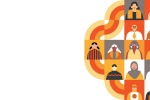Female millennials are the most confident and ambitious of any female generation
New PwC survey dispels myths about women and work
- 44% of female millennials in Malaysia starting their careers believe they can reach the very top levels with their current employer. Globally, 49% of female millennials share the same sentiments
- Competitive wages and other financial incentives top the list of most attractive employer traits by female millennials in Malaysia (54%), followed by opportunities for career progression (49%)
- 92% of female millennials in Malaysia who are in a relationship are part of a dual-career couple (86% globally), while 69% earn the same as or more than their partner or spouse (66% globally)
- 99% of female millennials and 97% of male millennials in Malaysia say that work-life balance was important to them. Flexible working arrangements is also valued, with 43% of female millennials and 33% of male millennials saying that they feel flexible working arrangements made an organisation an attractive employer
- However 73% of females and 71% of male millennials in Malaysia said that while work-life balance and flexibility programmes and policies exists in their organisations, they are not readily available to them in practice. This in contrast with 50% of females and 63% of male millennials globally who shared the same sentiments
To mark International Women’s Day (IWD) on Sunday 8th March 2015, PwC surveyed 8,756 female millennials (women born between 1980-1995) from 75 countries to find out how they feel about the world of work and their career. Malaysia had a total of 510 respondents.
The report – The female millennial: A new era of talent – reveals that the gender confidence gap is small, which is encouraging. 49% of male millennials in Malaysia feel that they can rise to the very top levels with their current employer compared to 44% of female millennials.
Globally, the female millennial ranks opportunities for career progression as the most attractive employer trait (53%); making her more career confident and ambitious than previous generations.
Female millennials in Brazil (76%), India (76%) and Portugal (68%) are the most confident, while their peers in Japan (11%), Kazakhstan (18%) and Germany (19%) are the least confident.
Of the female millennials in Malaysia who are in a relationship, 92% are part of a dual career couple, with 60% earning equal salaries to their partner or spouse.
When it comes to diversity, 96% of female millennials in Malaysia seek out employers with a strong record on diversity, equality and inclusion – and while they say employers talk about diversity, 62% do not feel opportunities are really equal for all.
Sridharan Nair, PwC Malaysia Managing Partner says:
“Our research shows that when it comes to the female millennial, we really are talking about a new era of female talent. In Malaysia, similar to global averages, female millennials are more highly educated and are entering the workforce in larger numbers than any of their previous generations.
But, this is not the only thing that has changed. They also enter the workforce with a different career mindset and are confident of success in both work and life. More than ever now, organisations need to embrace this changing workforce dynamic. Talent diversity and inclusiveness is a core component of competitiveness, which could very well make or break an organisation’s success.
Creating an enabling environment for diversity calls for new strategies to tackle the blind spots and barriers to success such as unconsciously held biases and the common practice of promoting people who behave and think alike.”
Chin Suit Fang, PwC Malaysia Diversity and Markets Leader, added:
“When it comes to earning power and patterns, female millennials really are trail blazers, with 69% of female millennials in Malaysia in a dual career couple earning as much as or more than their partner or spouse. The more experienced the female millennial, the more likely she is to be the primary earner in her relationship. Our study found that globally, 31% of female millennials with 9 or more years’ experience are the primary earner in their relationship, compared to 18% of millennial career starters and 24% of career developers.
In Malaysia, the desire for a role with more flexibility and a job that paid more elsewhere were the top two reasons female millennials left a former employer. In comparison, the desire to start a family was the fifth most likely reason for leaving a former employer.
Other studies like the ACCA-TalentCorp’s ‘Retaining Women in the Workforce’ survey have shown that most women leave the workforce to take care of their families (the highest among other reasons). More often than not, these women often struggle with returning to work. The difference in our findings could point to the fact that the pool of millennials we surveyed are largely unmarried (less than 20% are married or in relationships where they live as married) with no children (roughly 90% have no children). When and if they start having children, could be a critical turning point in the decisions they make concerning their careers.
Employers must commit to inclusive cultures and talent strategies that lean in to the confidence and ambition of the female millennial from day one of their career. We need to empower more strong women who are successful in juggling their careers, family life and other personal commitments to step up as role models for young women, and share their stories.”
(See footnote for more details on the barriers to re-entering the workforce)
More highlights of the PwC report include:
- The female millennial expects real time, high quality, future-focused feedback and despite being extremely tech-savvy, prefers critical feedback discussions to take place face-to-face
- Female demand for international experience has never been higher with 39% of female millennials in Malaysia wanting to work outside their home country during their career
- Female millennials in Malaysia are least likely to want to work in the Defence, Government and public services sectors, and Insurance, solely because of their image and reputation
In addition, we also release our third Women in Work Index. This index ranks 27 OECD countries on a measure that combines five key indicators of female economic empowerment: the equality of earnings with men; the proportion of women in work, both in absolute terms and relative to men; the female unemployment rate; and the proportion of women in full-time employment (see notes below).
END
Notes to editors
- To find out more about PwC’s IWD activities and to download The female millennial: A new era of talent, visit pwc.com/iwd. The report is based on a survey of over 10,000 millennials from 75 countries, 8,756 of whom are female. Malaysia had a total of 510 respondents, 320 of whom are female.
- More thoughts on diversity can also be found on PwC Malaysia’s Diversity webpage and PwC’s Gender Agenda blog.
- As the experience of a 34-year-old millennial woman with 12 years’ work experience will be very different to that of a 22-year-old millennial woman just starting out in her career, the report looks at the insights and desires of the female millennial by career stage: career starters (female millennials with 0–3 years’ work experience), career developers (4–8 years’ work experience) and career establishers (9 or more years’ work experience). (See attached infographic: The female millennial career stage differential)
- In the ACCA-TalentCorp study, 65% of women left the workforce to raise a family. While 93% of women on hiatus want to return to work, 63% said they find it difficult to return to the workforce. This is due to barriers such as career obsolescence and employer bias.
- PwC is committed to promoting diversity and inclusion and has a range of programmes in place to make progress on the issue. These include Aspire to Lead: The Women’s Leadership Series, a global forum on women and leadership for students around the world. PwC has also partnered with the UN Women’s HeForShe campaign, which aims to mobilise one billion men and boys as advocates and agents of change in ending the persisting inequalities faced by women and girls globally.
- To read more PwC research on the Millennials, take a look at Next Generation Diversity: Developing tomorrow’s female leaders; Millennials at work; and PwC’s NextGen: A global generational study.
- We just published the latest results for the PwC Women in Work Index, which show that the Nordic countries lead the Index, with Norway maintaining pole position, followed by Denmark and Sweden. The Women in Work Index (WWI) is a weighted average of five key measures that reflect female economic empowerment using data from the OECD and national statistical offices:
- The gender wage gap (25% weight)
- Female labour force participation rate (25% weight)
- The gap between female and male labour force participation rates (20% weight)
- The female unemployment rate (20% weight)
- The proportion of female employees who are in full-time employment (10% weight)
To access a full report that provides further detail of the methodology and results, including trends in individual indicators visit: http://www.pwc.co.uk/services/economics-policy/insights/women-in-work-index.html
About PwC - Globally
PwC helps organisations and individuals create the value they’re looking for. We’re a network of firms in 157 countries with more than 184,000 people who are committed to delivering quality in assurance, tax and advisory services. Tell us what matters to you and find out more by visiting us at www.pwc.com.
PwC refers to the PwC network and/or one or more of its member firms, each of which is a separate legal entity. Please see www.pwc.com/structure for further details.
©2014 PricewaterhouseCoopers. All rights reserved.















